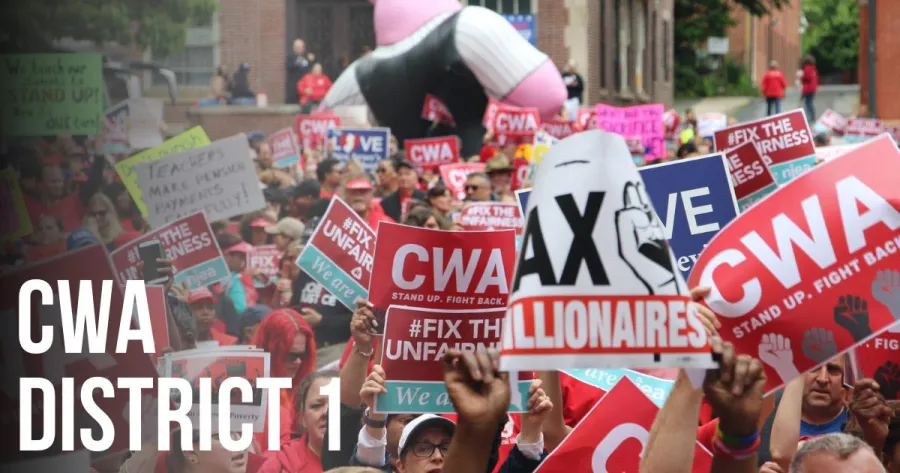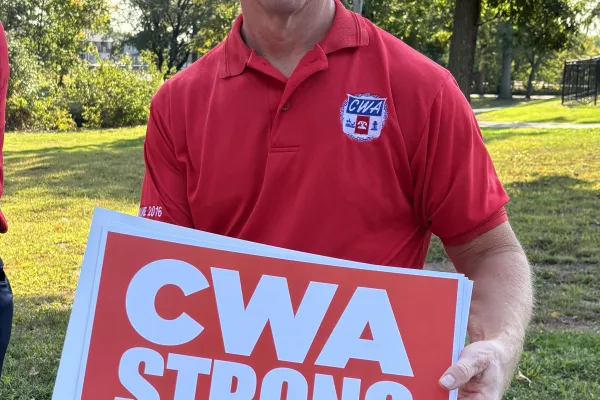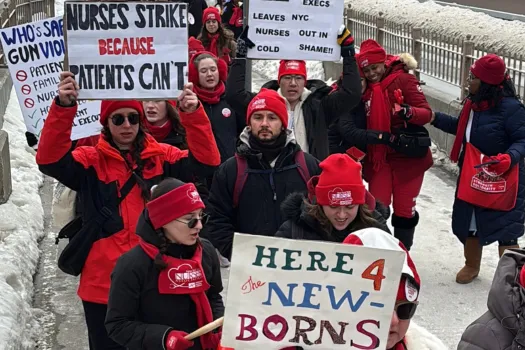CWA Members Organize for Quality Broadband with Strong Labor Standards

CWA members have been fighting to ensure that the funding from the recent Infrastructure Investment and Jobs Act - passed by the US Senate in August - not only results in affordable, reliable broadband for all Americans, but also creates good union jobs. As part of our Build Broadband Better campaign, CWAers from across the country have been speaking with members of our communities as well as elected leaders about broadband infrastructure and the need for it to be built with good, union jobs - not unskilled, non-union labor.
“We fought to get pro-labor language in the broadband infrastructure package for the first time ever,” said Nick Hoh, CWA Local 1104 Legislative Political Coordinator and Verizon broadband field technician and installer. “After the legislation passes through Congress, the next phase will be pivoting towards the states to make sure that once the money comes in, it filters down properly to underserved areas. We also want to put in safeguards to prevent companies from just taking the money and using it for older technology or just putting up a couple cell sites and calling it a day. We want to build out a good quality fiber optic network the right way with skilled union labor.”
CWA members have also been going into communities on their own time and gathering examples of shoddy broadband installations performed by nonunion contractors as well as testimonials from customers explaining what it means to them to have high quality, dependable, high-speed internet.
“It’s really critical to have a skilled union workforce in place to not only install and repair these projects, but also to be ready to immediately repair them when a disaster occurs such as an extreme weather event,” said Nick. “If Maine is getting money to build broadband, why bring in out-of-state nonunion contractors to come in, get paid and go home? It’s taxed out of state, they buy their property out of state and they raise their families out of state with money that’s supposed to be used for your state.”
Local 1180 Member Searches for Kidney Donor to Save Her Son
From the Desk of the Assistant to the Vice President of CWA District 1
10,000 New York State Nurses Association Members Win Strike in NYC; 5,000 More Press On, Entering Week Five


